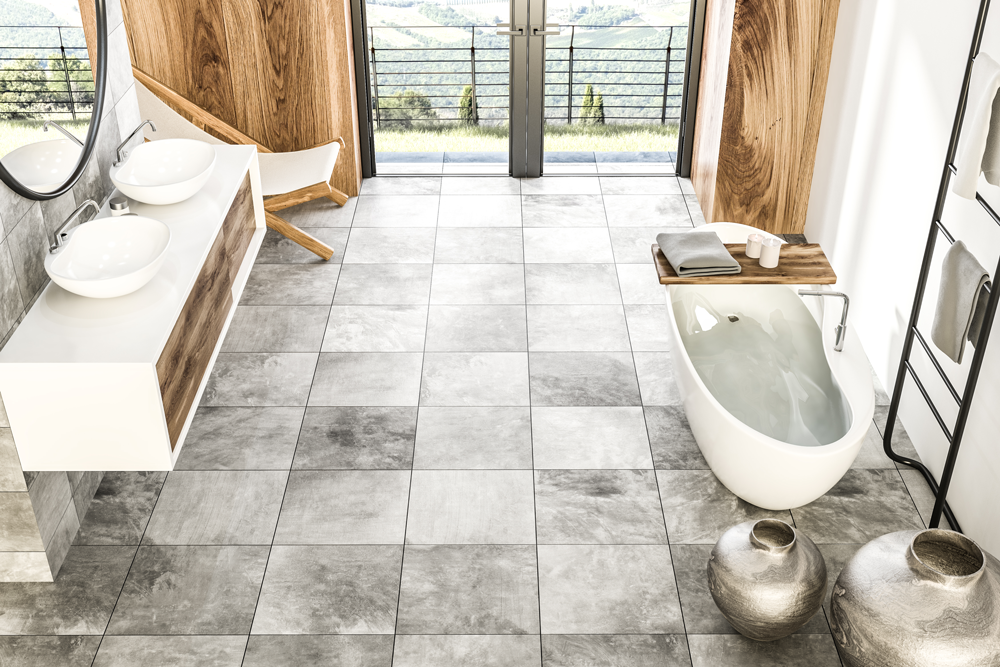Bathroom remodels are the most popular home improvement project in the United States, and for good reason. Having an updated, spacious, and comfortable bathroom is very important since we spend a lot of our time there. Once you’ve decided it’s time to remodel, what type of flooring you choose is crucial.
Selecting the right floor is a tough choice to make. You not only have to consider what suits best with the rest of the bathroom but also which flooring sustains more moisture. With so many different choices available, picking one can get overwhelming. We’ve compiled different materials that are popular in remodeling projects to help you decide what type of flooring is best for a bathroom
Moisture resistance is a must!
Water is extremely prevalent in every bathroom. So, if you’re deciding which flooring you should install, make sure you look for water-resistant options. Moisture will ruin a flooring that’s not meant to be exposed to water. However, you also have to consider budget, maintenance, durability, and appearance. So make sure you research well before deciding on one!
Ceramic Tiles
Pros: Ceramic or porcelain tiles are extremely common in bathrooms for a reason. They’re water-resistant, affordable, and pretty stylish as well. Moreover, it’s easy to clean and maintain. The best part is the array of options you have with ceramic tiles.
Cons: The downside is that they’re very slippery and cold to the touch. You could counteract this by having smaller tiles since the grout can provide some traction. However, while they’re easy to clean, the grout does get dirty with time and you need to pay special attention to clean it up well.
Natural Stone
Pros: If you desire luxury, natural stone might be for you. Stone tiles come in different varieties, the most common are marble and limestone. It’s also a very durable material and properly maintained, it can last you a lifetime.
Cons: The problem is that stone needs higher maintenance than other types of flooring. It also requires sealing before and during the installation process. Not to mention natural stone is quite pricey, in fact, it’s the most expensive option for flooring.
Vinyl
Pros: Vinyl is a great option for bathroom flooring. It comes in sheets, planks, and tiles, making it adaptable and versatile to many homeowners. It comes in numerous designs, colors, patterns, and styles. You can even imitate stone, hardwood, and other types of flooring with vinyl. It’s very resistant to water, making it ideal for rooms with high moisture. Cons: You can experience problems with moisture if you install vinyl tiles due to the seams between each tile.
Laminate
Pros: Laminate can imitate the look of hardwood floors but it has better water resistance than wood. Laminate is a good choice for bathrooms if you properly install it with the necessary precautions to protect the wood from moisture. This can be done by reliable and professional flooring contractors. Moreover, it’s easy to clean and maintain. Cons: If water does penetrate, the floor would blister and bubble and you’d have to replace it.
Conclusion
You can find advantages and disadvantages to all types of flooring. Taking into consideration affordability, appearance, and water resistance, Vinyl works best. Sheet vinyl flooring and luxury vinyl plank floorings are one of the best options in the market. At the end of the day, you have to take into account many factors and most importantly, rely on the professionals who will properly install your flooring. Contact Alpine Flooring Pro to learn more!

